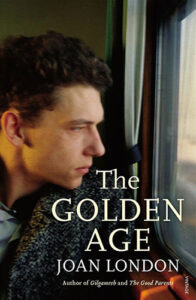 Joan London’s latest book is, I sheepishly admit, the first of hers I’ve ever read. But, after just a few pages of The Golden Age, I’m her newest fan.
Joan London’s latest book is, I sheepishly admit, the first of hers I’ve ever read. But, after just a few pages of The Golden Age, I’m her newest fan.
Lovers of London’s prose will know just how lightly and effortlessly she manages to craft her tales. This particular one is set in the Golden Age, once a West Australian pub, now home to children who are recovering, physically and emotionally, from polio. “Some considered that this wasn’t a suitable location for a hospital. But the children found the noise soothing and loved the lights shining all night through their windows.”
Our protagonist is Frank Gold, a small, thin boy who has a golden tongue and only faint memories of his upbringing in German-occupied Hungary. He has a depth of feeling that is set in astonishing relief against the tight-lipped stoicism of the other residents of the home, predominantly British Australians. What is unsaid in this novel is often more powerful than what is, as we delve into the world of Frank and his migrant parents, as well as the other patients and their families.
Although this book is ostensibly about illness, we rarely pity these afflicted children. Their resilience and determination shines, as they allow polio to shape their lives but not define them. For Frank, “polio had taken his legs, but given him his vocation: poet”. He also discovers love in the shelter of the Golden Age, in the form of an angelic girl called Elsa. Their relationship is one of intense feeling and deep understanding, affecting not only the course of their own lives but touching those around them as well.
A beautiful novel that eddies and flows in the bright Western Australian light, London explores passion, first love, and what it means to be part of a family.
